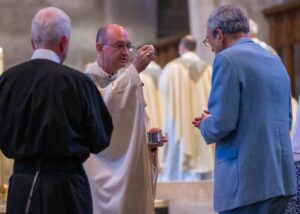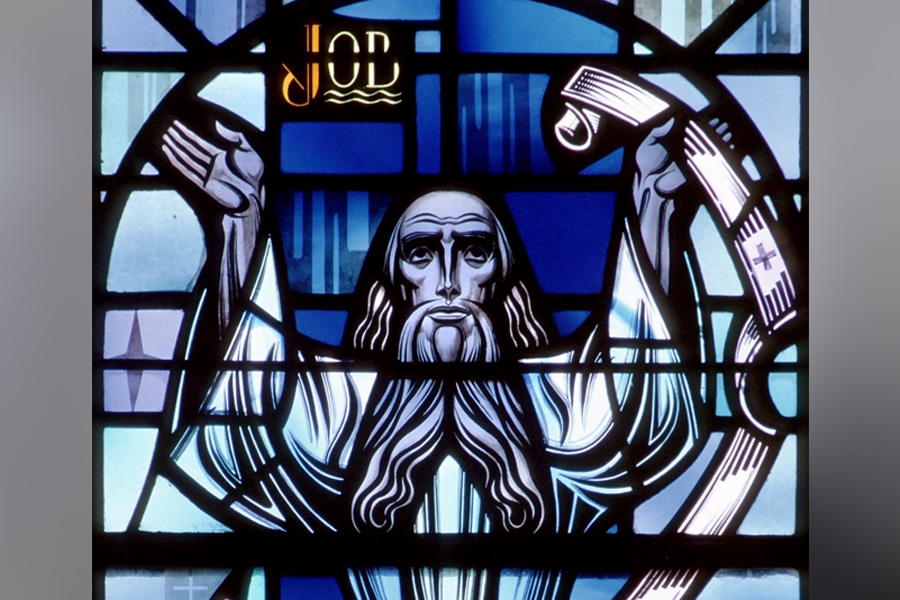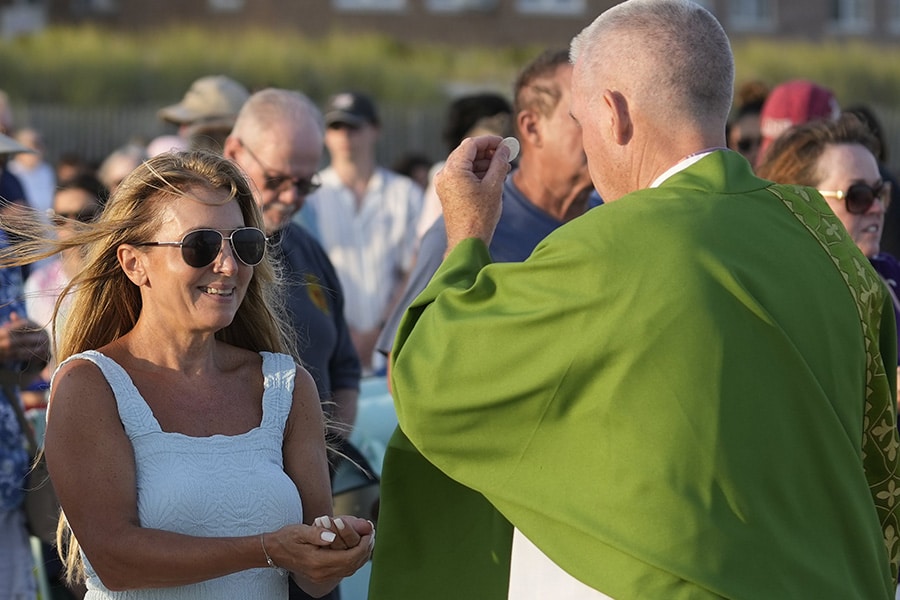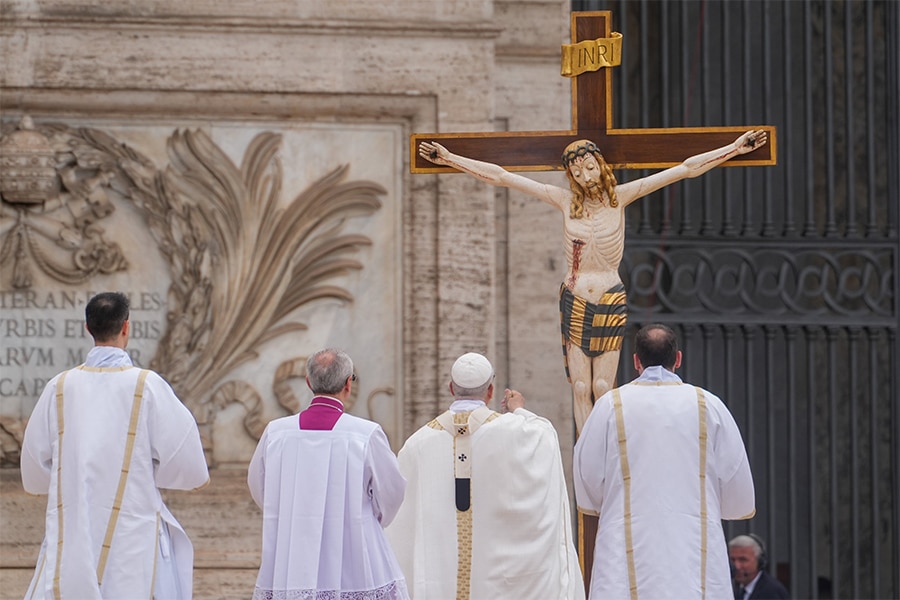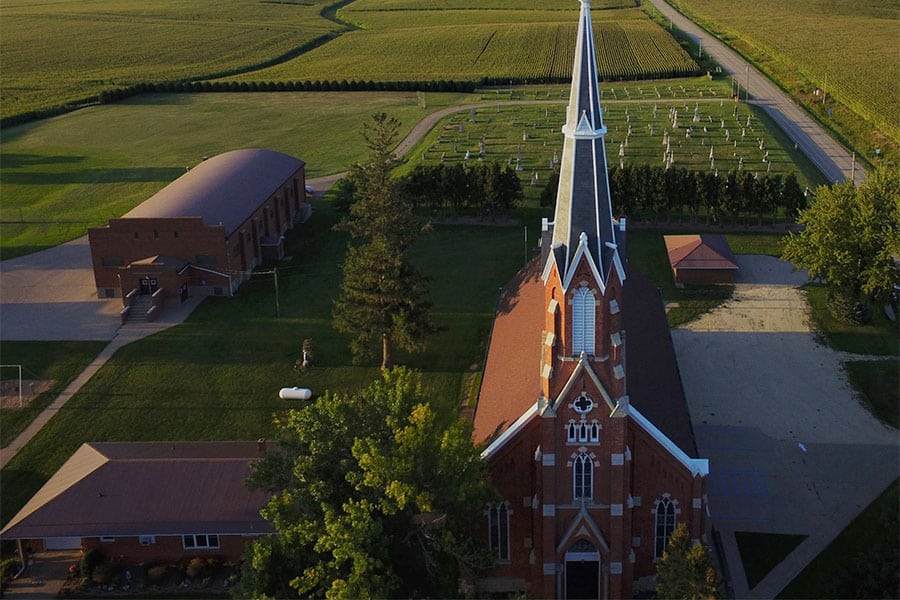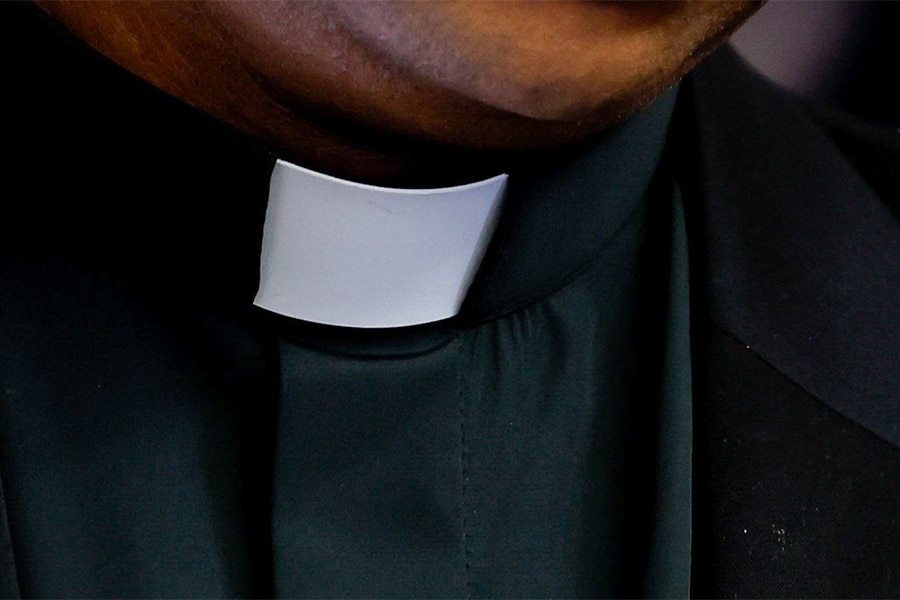Q. My goddaughter is considering marrying a man who will not get married in the Catholic Church and says that their children will not be raised Catholic. If she does this, can she still attend Mass and participate in the sacraments? (City and state withheld)
A. First, I must ask for a clarification. Is the man objecting simply to their wedding taking place in a Catholic church setting, or is he refusing to be married in a ceremony approved by the Catholic Church? The reason for my question is this: Since the man is presumably not a Catholic, they could meet with a priest and apply for permission to be married someplace other than a Catholic church — a nondenominational venue, for example, or even a secular one.
But if he refuses even to do that, then their marriage would not be recognized by the Catholic Church as a valid one — which would mean that your goddaughter would no longer be eligible to receive holy Communion in the Catholic Church (although she could and should continue to attend Mass.)
In applying for that permission, she would have to promise to continue to observe her own Catholic faith and practice and — in the language of Canon 1125 — “make a sincere promise to do all in … her power so that all offspring are baptized and brought up in the Catholic Church.” Of course, this must be interpreted within the context of the marriage covenant, and if her husband simply refuses, she is not compelled to do the impossible.
Your question makes me wonder, though, whether — with such a fundamental disagreement — the marriage itself is such a good idea and whether the forecast might be for continual struggle and strife. There is, after all, nothing more basic than our understanding of why we are here on this earth, what God wants for us and how we see our responsibilities to the divine.
Q. In “Redemptionis Sacramentum,” issued by St. John Paul II in 2004, it says that an extraordinary minister of holy Communion should only be used if real necessity prompts it. I’m struggling to see how saving a few extra minutes during Mass is a “real necessity” and why extraordinary ministers are needed at all, especially in small parishes like my own.
(And if a parish does find it temporarily necessary, shouldn’t that parish be praying fervently and urgently for the Lord to send them an additional priest?) Please help me understand why extraordinary ministers are being used so ordinarily today. (mid-Missouri)
A. The ordinary minister of holy Communion is a bishop, priest or deacon. When circumstances warrant it, laypeople may be delegated to assist. “Redemptionis Sacramentum,” issued by the Vatican’s Congregation for Divine Worship and the Sacraments in 2004, addresses those circumstances as follows:
“Indeed, the extraordinary minister of holy Communion may administer Communion only when the priest and deacon are lacking, when the priest is prevented by weakness or advanced age or some other genuine reason, or when the number of faithful coming to Communion is so great that the very celebration of Mass would be unduly prolonged. This, however, is to be understood in such a way that a brief prolongation, considering the circumstances and culture of the place, is not at all a sufficient reason” (No. 158).
The term “unduly prolonged” is nowhere quantitatively defined, and it obviously invites a judgment call. When Communion is offered under both species (a practice that has largely been suspended during the current pandemic) this may require the help of extraordinary ministers; likewise, an elderly priest might need assistance, a tight Mass schedule could be a factor and a weekday Mass might include congregants on their way to work.
More Question Corner
Copyright © 2020 Catholic News Service/U.S. Conference of Catholic Bishops
